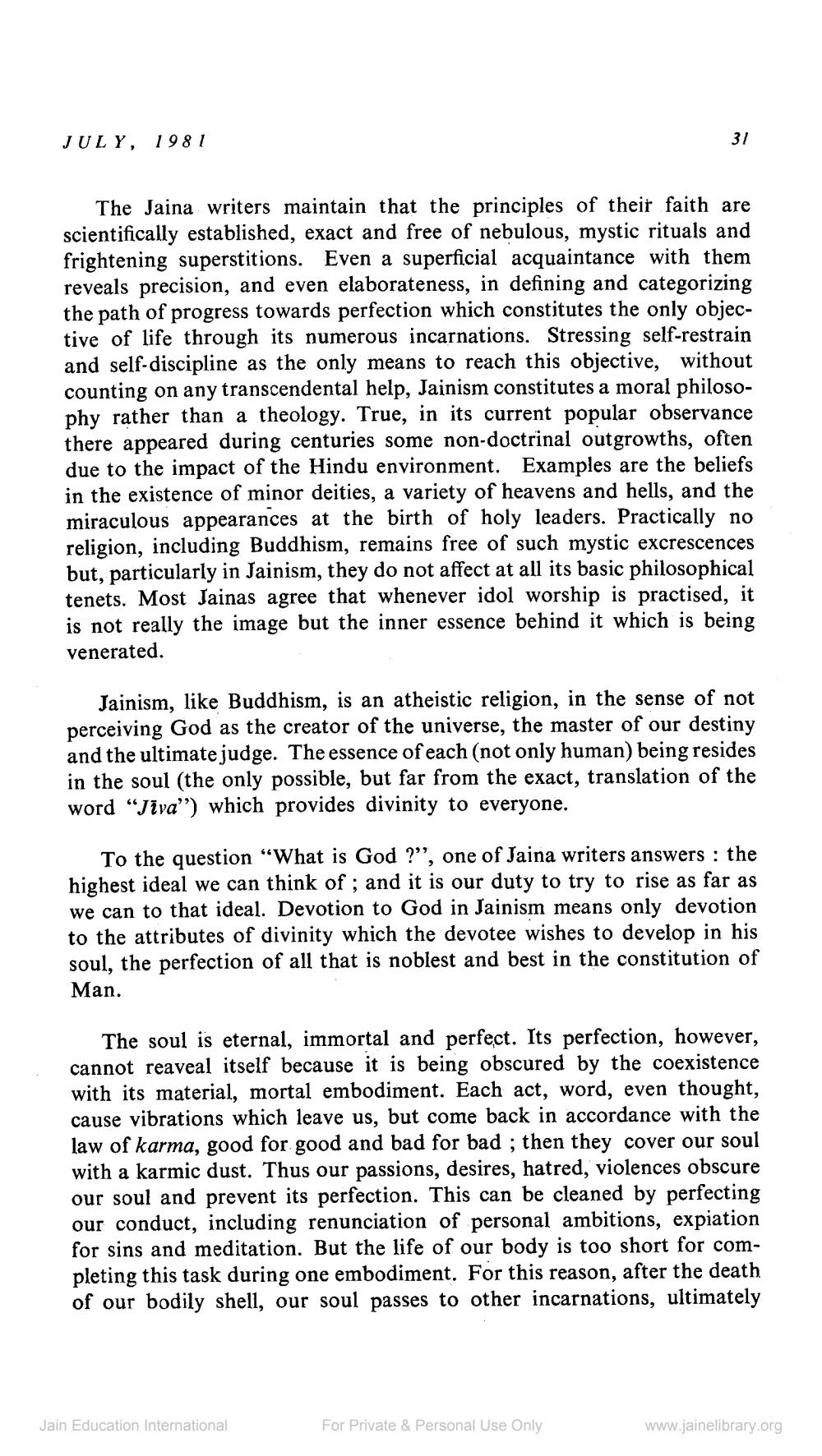________________
JULY, 1981
31
The Jaina writers maintain that the principles of their faith are scientifically established, exact and free of nebulous, mystic rituals and frightening superstitions. Even a superficial acquaintance with them reveals precision, and even elaborateness, in defining and categorizing the path of progress towards perfection which constitutes the only objective of life through its numerous incarnations. Stressing self-restrain and self-discipline as the only means to reach this objective, without counting on any transcendental help, Jainism constitutes a moral philosophy rather than a theology. True, in its current popular observance there appeared during centuries some non-doctrinal outgrowths, often due to the impact of the Hindu environment. Examples are the beliefs in the existence of minor deities, a variety of heavens and hells, and the miraculous appearances at the birth of holy leaders. Practically no religion, including Buddhism, remains free of such mystic excrescences but, particularly in Jainism, they do not affect at all its basic philosophical tenets. Most Jainas agree that whenever idol worship is practised, it is not really the image but the inner essence behind it which is being venerated.
Jainism, like Buddhism, is an atheistic religion, in the sense of not perceiving God as the creator of the universe, the master of our destiny and the ultimate judge. The essence of each (not only human) being resides in the soul (the only possible, but far from the exact, translation of the word "Jiva”) which provides divinity to everyone.
To the question "What is God ?", one of Jaina writers answers : the highest ideal we can think of; and it is our duty to try to rise as far as we can to that ideal. Devotion to God in Jainism means only devotion to the attributes of divinity which the devotee wishes to develop in his soul, the perfection of all that is noblest and best in the constitution of Man.
The soul is eternal, immortal and perfect. Its perfection, however, cannot reaveal itself because it is being obscured by the coexistence with its material, mortal embodiment. Each act, word, even thought, cause vibrations which leave us, but come back in accordance with the law of karma, good for good and bad for bad ; then they cover our soul with a karmic dust. Thus our passions, desires, hatred, violences obscure our soul and prevent its perfection. This can be cleaned by perfecting our conduct, including renunciation of personal ambitions, expiation for sins and meditation. But the life of our body is too short for completing this task during one embodiment. For this reason, after the death of our bodily shell, our soul passes to other incarnations, ultimately
Jain Education International
For Private & Personal Use Only
www.jainelibrary.org




